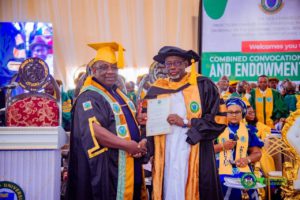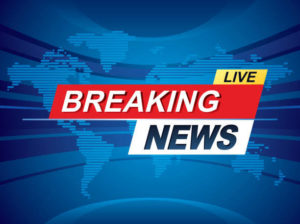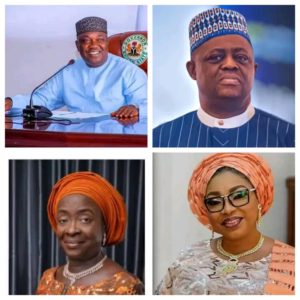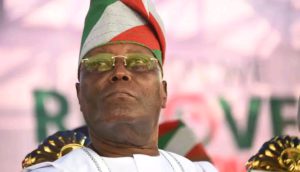Nigerian Civil Society Sounds Alarm: Calls for Bold Global and Domestic Action as UN Financing for Development Conference Looms
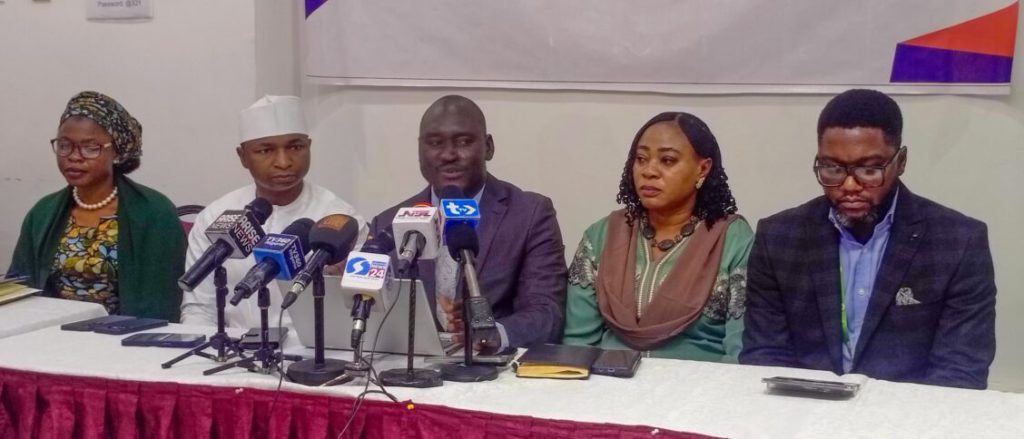
By Editor
Lagos, Nigeria – With less than two months until the pivotal Fourth International Conference on Financing for Development (FfD4) in Seville, Spain, Nigerian civil society organisations (CSOs) are issuing a stark warning and an urgent call for comprehensive global financial reforms and decisive domestic action. A new report highlights Nigeria’s escalating financing crisis, threatening its ability to achieve sustainable development and address critical needs in education, health, agriculture, and climate resilience.
The report, titled “Financing for Development in Nigeria: Sectoral Context and Insights for the Fourth International Conference,” is a collaborative effort led by the Civil Society Legislative Advocacy Centre (CISLAC). Key partners include Oxfam in Nigeria, Christian Aid, the International Budget Partnership, Tax Justice & Governance Platform, Connected Development, and other members of the Africa Agenda on Financing for Development.
These prominent CSOs are at the forefront of advocating for transparency, accountability, and effective governance in Nigeria. Their collective voice underscores the gravity of the situation, emphasizing that without significant shifts in both international and national approaches to development finance, Nigeria faces a deepening crisis.
A Nation Grappling with a Multidimensional Financing Crisis
The report paints a concerning picture of Nigeria’s financial health. It identifies a “multidimensional financing crisis” fueled by:
- Underperforming Domestic Resource Mobilisation: Nigeria struggles to generate sufficient internal revenue.
- Inequitable Global Financial Systems: Existing international financial structures are perceived as unfair and disadvantageous to developing nations like Nigeria.
- Rising Climate Vulnerabilities: The escalating impacts of climate change place additional financial burdens on the nation.
This financial strain has led to chronic underfunding in critical sectors. The report reveals alarming statistics:
- Education spending remains below UNESCO benchmarks.
- Health expenditure languishes at under 4% of GDP.
- Nigeria loses an estimated $18 billion annually to illicit financial flows (IFFs), a staggering sum that could significantly bolster development efforts.
- The country’s debt service-to-revenue ratio has alarmingly surpassed 70%, severely constraining public investment in human capital and essential services.
While international frameworks like the African Union’s Agenda 2063, ECOWAS Vision 2050, and the UN Sustainable Development Goals (SDGs) offer roadmaps for progress, the CSOs argue that weak implementation is Nigeria’s primary impediment. Persistent challenges include:
- Widespread corruption
- Poor budget execution and oversight
- Outdated data hampering effective planning
- Weak public financial management systems
- A lack of measurable development plans in many Nigerian states, hindering investment and progress tracking.
“Without deliberate efforts to close financing gaps at both national and sub-national levels, Nigeria risks falling further behind in its development aspirations,” the report cautions.
Global Financial Architecture: A Call for Fairness and Equity
Nigerian CSOs are urging the international community to undertake substantial reforms to the global financial architecture ahead of the FfD4 conference, scheduled for June 30, 2025. Their key demands include:
- Fairer Global Tax Rules: To ensure multinational corporations pay their fair share and to curb tax avoidance and evasion that drain resources from developing countries.
- Improved Access to Climate Finance: To help Nigeria and other vulnerable nations adapt to and mitigate the impacts of climate change. This includes prioritizing loss and damage funding and facilitating access to green investments.
- Review of Concessional Financing Frameworks: Current frameworks, they argue, do not adequately consider the unique needs of populous countries with high poverty rates like Nigeria.
- Reforms to Special Drawing Rights (SDRs): To better support middle-income countries facing fiscal constraints. SDRs are supplementary foreign exchange reserve assets maintained by the International Monetary Fund (IMF).
Domestic Reforms: Charting a Path Towards Self-Sufficiency
Internally, the civil society groups propose a robust set of reforms:
- Adoption of Digital Tax Systems: To enhance efficiency, transparency, and revenue collection.
- Trade Facilitation: To boost industrialisation and diversify the economy.
- Strengthened Anti-Corruption and Asset Recovery Campaigns: To plug financial leakages and repatriate stolen assets.
- Creation of Development Finance Facilities: To attract private sector investment in crucial infrastructure and social services.
- Establishment of Peer-Learning Platforms: To foster innovation and best practices in sub-national financing.
The Brain Drain Challenge: Investing in Nigeria’s Future
The report also draws critical attention to Nigeria’s worsening brain drain, as skilled professionals increasingly seek opportunities abroad. The CSOs link this exodus directly to the lack of inclusive economic opportunities and a challenging socio-economic environment. “Unless we invest in youth-focused policies and job creation, Nigeria’s skilled workforce will continue to emigrate in search of better prospects,” the report warns. This outflow of human capital represents a significant loss for Nigeria’s development potential.
FfD4: A Critical Juncture for Global Development Finance
As the global community prepares for the FfD4 conference in Seville, Nigerian civil society organisations see it as a crucial opportunity. They believe the summit can, and must, reshape the landscape of development finance to foster greater equity, accountability, and inclusion within the international financial system. The outcomes of this conference will have far-reaching implications for Nigeria’s ability to fund its development agenda and improve the lives of its citizens.
The coming weeks will be critical for advocacy and diplomatic efforts to ensure that the concerns and recommendations of Nigerian CSOs, and indeed those of other developing nations, are central to the discussions and commitments made in Seville. The world will be watching.


